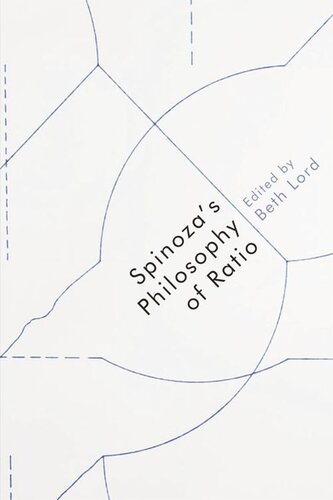

Most ebook files are in PDF format, so you can easily read them using various software such as Foxit Reader or directly on the Google Chrome browser.
Some ebook files are released by publishers in other formats such as .awz, .mobi, .epub, .fb2, etc. You may need to install specific software to read these formats on mobile/PC, such as Calibre.
Please read the tutorial at this link: https://ebookbell.com/faq
We offer FREE conversion to the popular formats you request; however, this may take some time. Therefore, right after payment, please email us, and we will try to provide the service as quickly as possible.
For some exceptional file formats or broken links (if any), please refrain from opening any disputes. Instead, email us first, and we will try to assist within a maximum of 6 hours.
EbookBell Team

4.0
6 reviewsFrom his geometrical method to his theory of mind and body and from his account of the emotions to his doctrine of how to live well, ratio is of prime importance in Spinoza's philosophy.
These essays explore the surprisingly varied dimensions of this unacknowledged keystone of Spinoza’s thought. They take you from Spinoza’s geometrical diagrams to his concepts of mind, body, the emotions, and the cosmos. It shows how Spinoza’s thinking about ratio influences the concept of proportion in Gulliver’s Travels, the differential ontology of Deleuze, egalitarian design for wellbeing, and the notion of an affective architecture.
Simon B. Duffy, Yale-NUS College, Singapore.
Hélène Frichot, KTH, Stockholm, Sweden.
Gökhan Kodalak, Cornell University, USA.
Michael LeBuffe, University of Otago, Canada.
Beth Lord, University of Aberdeen, UK.
Heidi M. Ravven, Hamilton College, New York, USA.
Peg Rawes, Bartlett School of Architecture, UCL, UK.
Anthony Uhlmann, Western Sydney University, Australia.
Valtteri Viljanen, University of Turku, Finland.
Stefan White, Manchester School of Architecture, UK.
Timothy Yenter, University of Mississippi, USA.